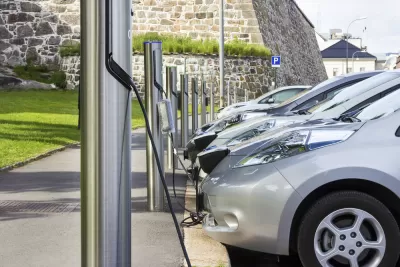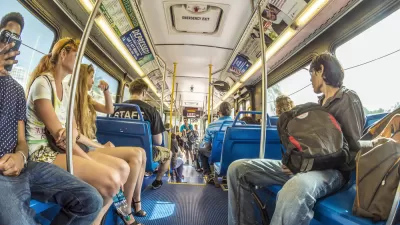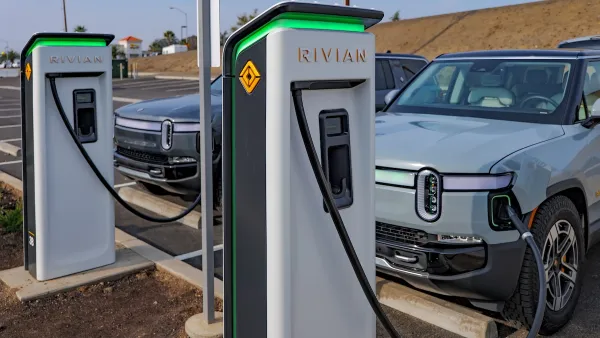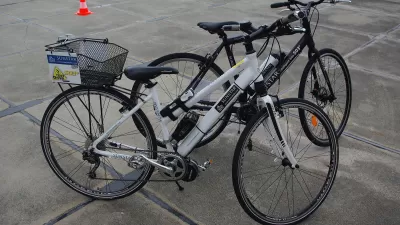The focus on electrifying personal vehicles misses the opportunity to transform urban transportation systems, reduce congestion, and make cities more affordable.

"Introducing electric vehicles (EVs) on a massive scale has often been framed as the solution to reducing passenger transport emissions," writes Vera O'Riordan, but electrification alone won't be enough to meet emissions reduction goals and keep global warming at less than 2 degrees, according to new research.
In addition, a population that continues to depend on cars poses significant problems for growing cities. With urbanization on the rise and space at a premium, we must reduce car ownership in cities if we are to keep them as affordable and accessible as possible. Huge amounts of land that could otherwise be used to house people or be dedicated to nature are still reserved for roads and car parks.
O'Riordan describes the UN Intergovernmental Panel for Climate Change's recommended transportation planning approach, known as "Avoid, Shift, Improve." The framework advocates for policies that allow people to reduce their need to travel very far for their daily needs and outlines solutions for shifting necessary travel to more sustainable modes and improving energy sources for transportation.
Transportation advocates have similarly criticized policymakers' focus on electric vehicles, denouncing this car-centric approach as a perpetuation of our current, flawed systems of transportation and urging support for more efficient, multi-modal transit networks and safe infrastructure.
FULL STORY: Electric vehicles aren’t a fix for carbon emissions. These 3 things need to change—fast

Maui's Vacation Rental Debate Turns Ugly
Verbal attacks, misinformation campaigns and fistfights plague a high-stakes debate to convert thousands of vacation rentals into long-term housing.

Planetizen Federal Action Tracker
A weekly monitor of how Trump’s orders and actions are impacting planners and planning in America.

Chicago’s Ghost Rails
Just beneath the surface of the modern city lie the remnants of its expansive early 20th-century streetcar system.

Bend, Oregon Zoning Reforms Prioritize Small-Scale Housing
The city altered its zoning code to allow multi-family housing and eliminated parking mandates citywide.

Amtrak Cutting Jobs, Funding to High-Speed Rail
The agency plans to cut 10 percent of its workforce and has confirmed it will not fund new high-speed rail projects.

LA Denies Basic Services to Unhoused Residents
The city has repeatedly failed to respond to requests for trash pickup at encampment sites, and eliminated a program that provided mobile showers and toilets.
Urban Design for Planners 1: Software Tools
This six-course series explores essential urban design concepts using open source software and equips planners with the tools they need to participate fully in the urban design process.
Planning for Universal Design
Learn the tools for implementing Universal Design in planning regulations.
planning NEXT
Appalachian Highlands Housing Partners
Mpact (founded as Rail~Volution)
City of Camden Redevelopment Agency
City of Astoria
City of Portland
City of Laramie





























